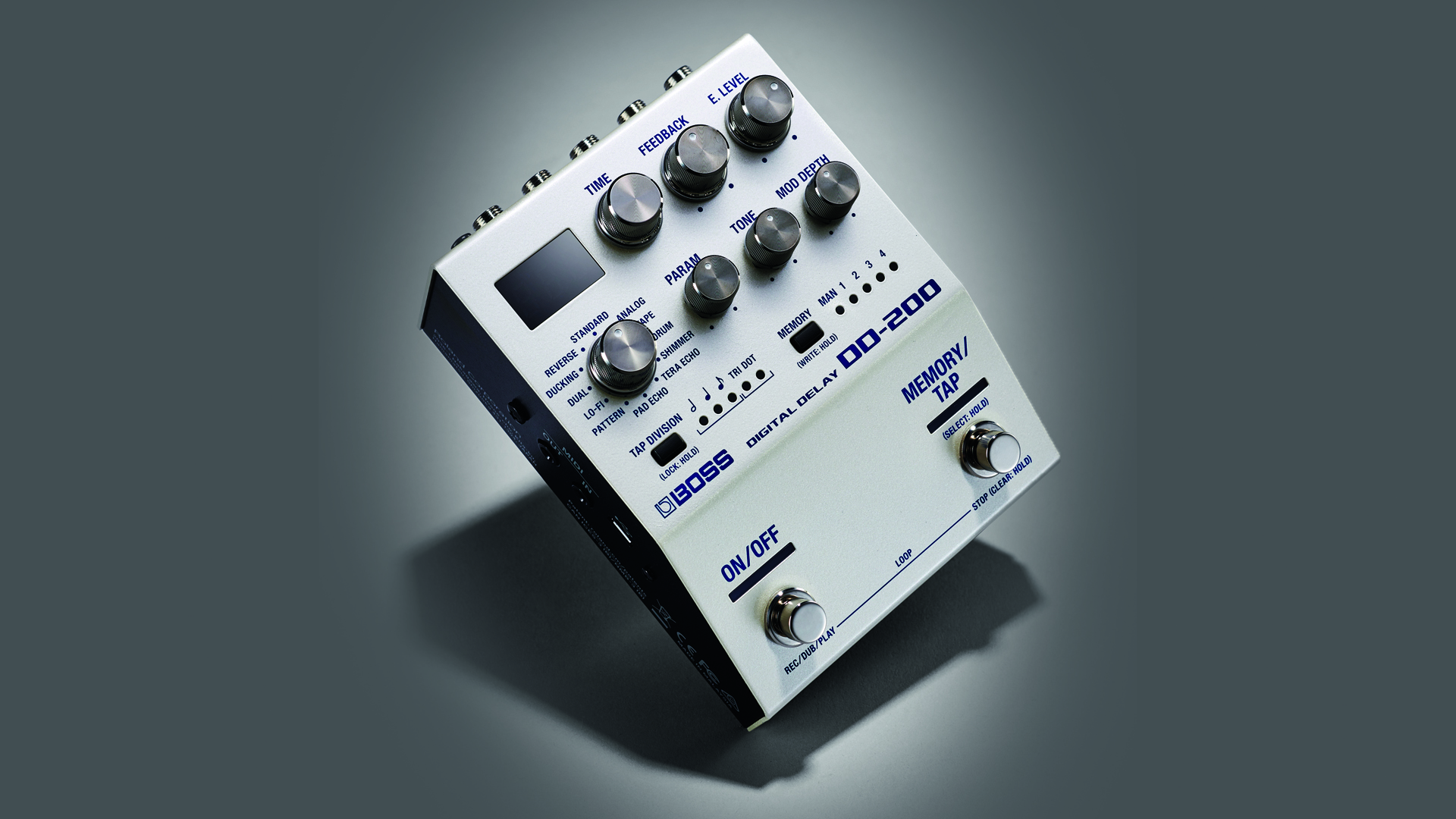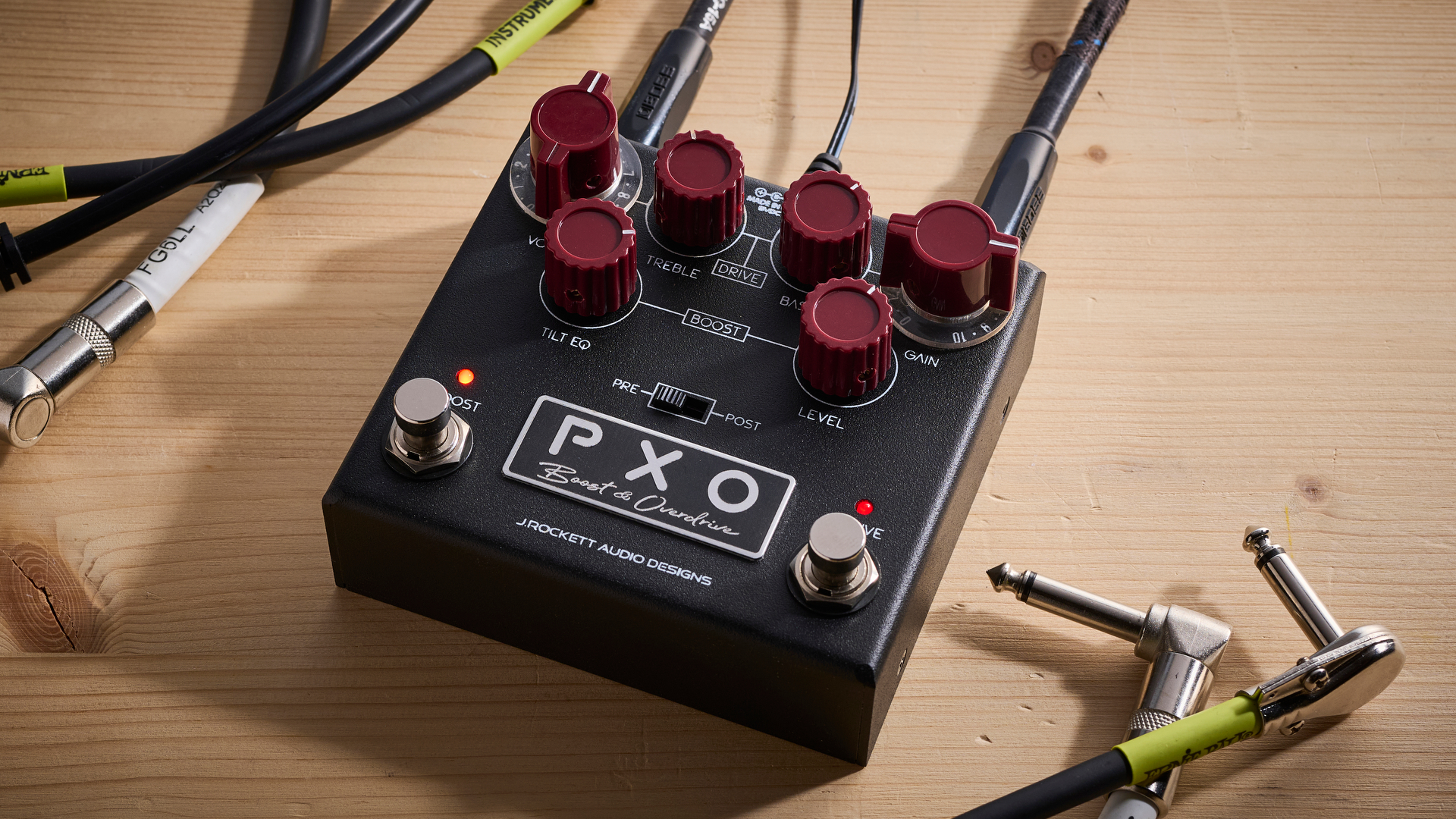MusicRadar Verdict
"The DD-200 offers more delay features than most players will ever need, and does so in a more compact unit for your pedalboard. But delay fans might still want to opt for the DD-500"
Pros
- +
Covers the delay needs of most players with super sounds and editability
- +
A more compact option than the flagship DD-500
Cons
- -
There are compelling reasons to choose the DD-500 over this
MusicRadar's got your back
What is it?
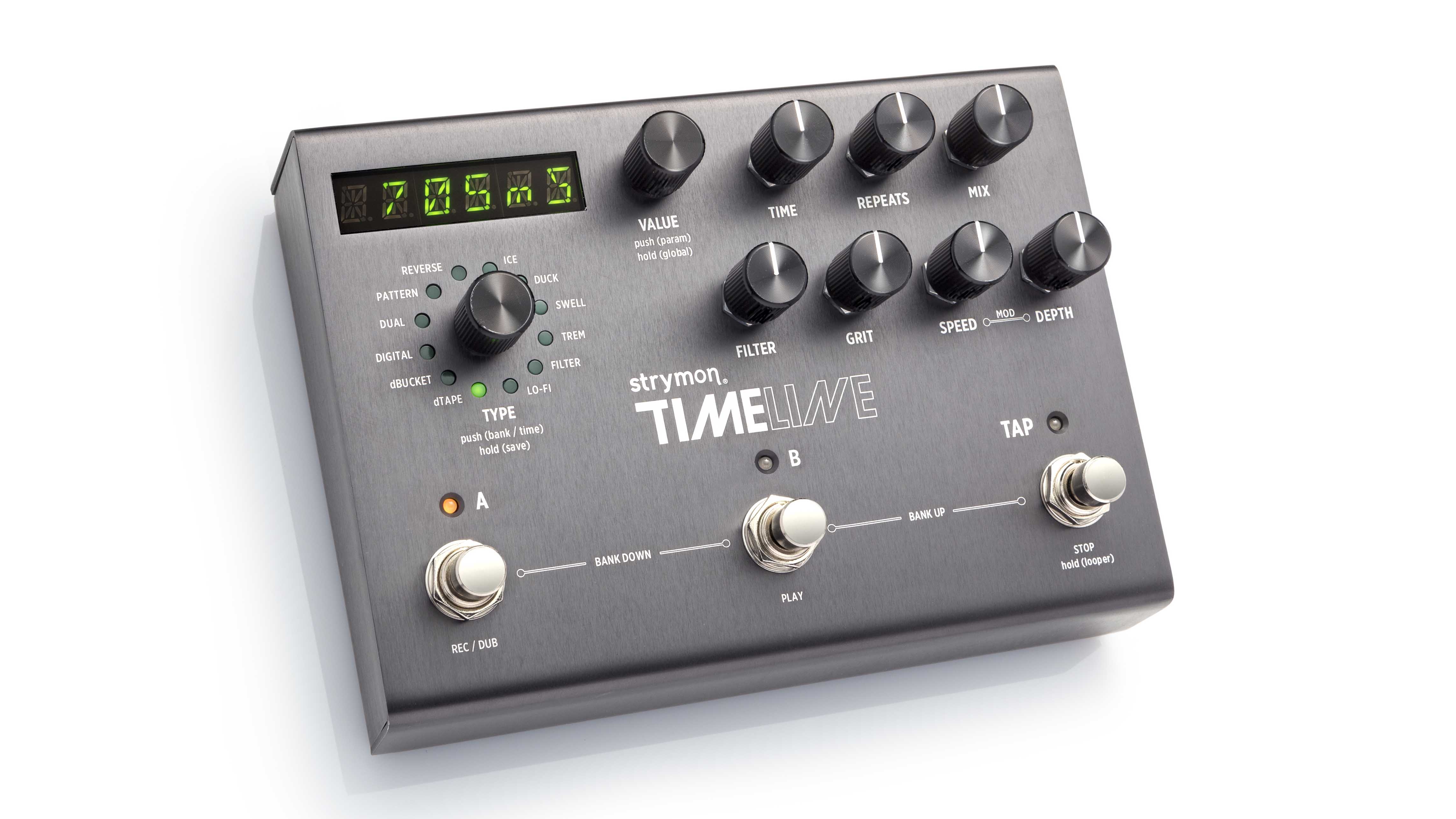
The 10 best delay pedals
The best analog and digital delay pedals at every price point
The effects pedal market has never been fiercer and Boss, despite its reputation as a creator of classic units, isn’t standing still. There are four new models in its premium 200 range: the MD-200 Modulation, OD-200 Hybrid Drive, DD-200 Digital Delay and EQ-200 Graphic Equalizer (all £249 each).
The DD-200 here condenses features from their flagship DD-500 into a compact yet powerful delay package. If you're in the market for a BOSS delay, these are the top of the line – so we'll be focusing on making the choice between them too.
The DD-200 packs 12 delay types including the retro space echo (Tape), Binson echorec 2 (Drum) and the textural pad echo. It also offers a 60-second phrase looper and four onboard memories to call up when you need.
Performance and verdict
The release of the compact 200 series pedals from Boss makes sense. It’s been a couple of years since their flagship 500-series models came out, leaving their older dual- footswitch pedals like the DD-20 in need of an update. Enter the DD-200; with the powerful processor of the larger DD-500, but a reduced footprint, it’s designed to be a pedal you might choose over the 500 for practical reasons, rather than questions of budget alone.
As you’d expect, the sounds are all here, from digital delays to tape recreations. As with the DD-500, we found the reverse delay to be good, but somehow less usable than it feels on the discontinued DD-6 and current DD-7 compact pedals. There are no such issues with the ‘standard’ delay modes, however, which are excellent. We spent a lot of time on the dual mode, which as you’d expect shines in stereo, and found it easy to dial in compelling rhythmic delays using the dotted eighth subdivision setting.
We spent a lot of time on the Dual mode
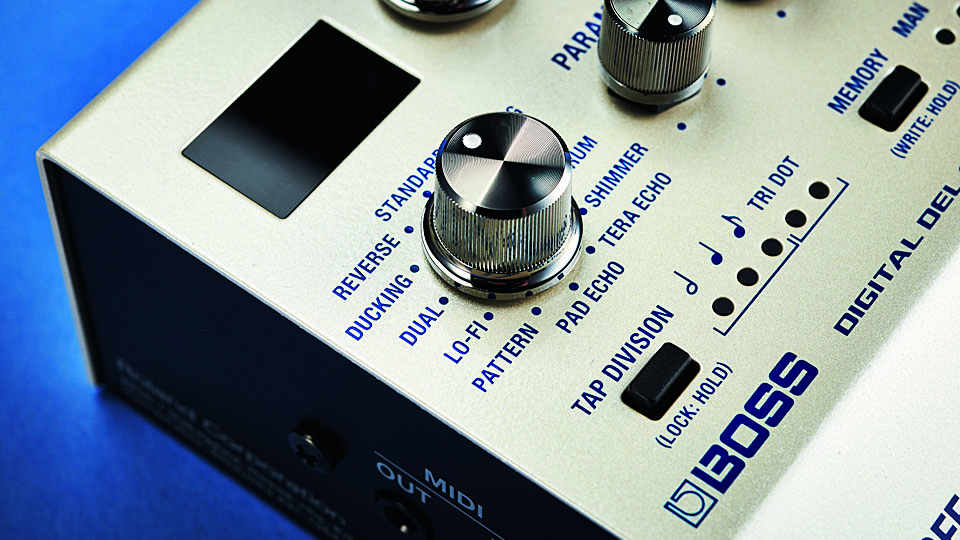
The patch we kept returning to, however, was the shimmer mode. With the mix up past twelve o’clock, a high feedback level and the tone pulled back, we found it incredibly expressive for slow, picked arpeggios and even quicker chord-based lines. For busier work and post-rock tremolo picking the tape delay sounds were our go-to. Here the Boss unit stacks up pretty well against competitors like the Strymon El Capistan.
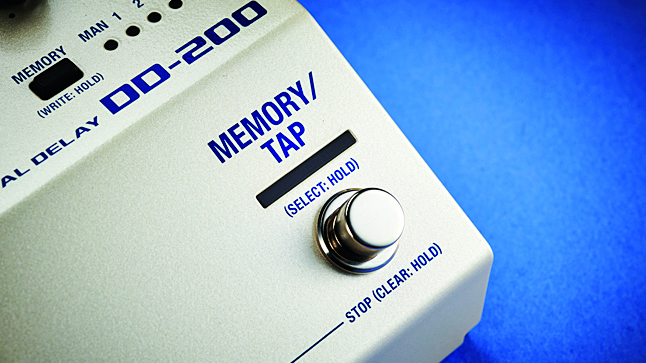
The pad echo and tera echo modes also proved effective for more ambient chord work, especially combined with swells using the guitar volume knob, though these days those kinds of expansive reverb-delay sounds are outclassed by the software available for studio use.
Finally, although we’re fans the pattern delay on the larger DD-500, it’s a bit harder to dial in on the smaller pedal, which reduced our willingness to fiddle with it.
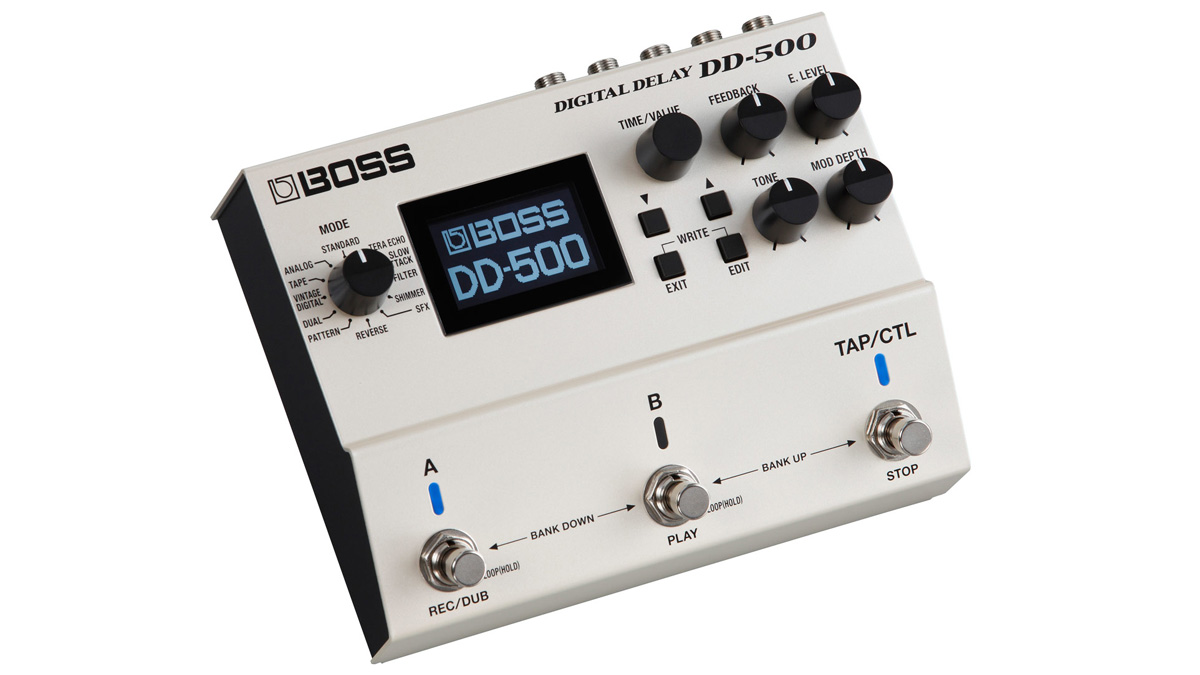
• Boss DD-500
An almighty echo-heavy addition to the tenacious DD series
• Strymon Timeline
A do-it-all delay pedal, superb for studio and stage
• TC Electronic Flashback 2
The best versatile compact delay pedal
The DD-200 is an impressive piece of kit, and the trade-off between interface and pedal size is mostly worthwhile.Though admittedly we had to reach for the manual several times, and the pedal obviously doesn’t offer the same capacity to easily tweak parameters on the fly that its larger sibling does.
Moreover, with a firmware patch, the DD-500 can be configured to run three delays from one patch, one at a time, or two in either series or parallel, and for us that makes the DD-500 the more desirable option. Doubly so, as the difference in street price is under a hundred pounds from most retailers.
MusicRadar verdict: The DD-200 offers more delay features than most players will ever need, and does so in a more compact unit for your pedalboard. But delay fans might still want to opt for the DD-500.
Hands-on demos
Rabea Massaad
Andertons Music
Premier Guitar
Pete Thorn
The web says
"The Boss DD-200 is a pleasure to use. It constructively carves out a useful middle ground where ease and utility meet the expressive potential of wildly varied presets and extroverted and heavy delay textures." Guitar Player
"It may not have as many features as the flagship DD-500, but definitely includes essentials, pretty much everything most guitar players will ever need."
Guitar Effects Pedalz
Specifications
• Type: Delay pedal with 2-bit AD/DA, 32-bit processing, 96 kHz sampling rate
•Modes: 12 delay modes and 60 second 105 looper
• Controls: Bypass and Tap footswitches, with room for expansion footswitches and expression on the rear
• Power: 9VDC or 3xAA batteries
• Contact: Roland.com/uk
MusicRadar is the number one website for music-makers of all kinds, be they guitarists, drummers, keyboard players, DJs or producers...
- GEAR: We help musicians find the best gear with top-ranking gear round-ups and high-quality, authoritative reviews by a wide team of highly experienced experts.
- TIPS: We also provide tuition, from bite-sized tips to advanced work-outs and guidance from recognised musicians and stars.
- STARS: We talk to musicians and stars about their creative processes, and the nuts and bolts of their gear and technique. We give fans an insight into the craft of music-making that no other music website can.
“I used everything I knew about music”: How Green Day exceeded expectations with their most ambitious song
YouTube just added AI tools that makes musicians, library music and video editors redundant
“Every one of them said yes without hesitation": Hank Marvin and Roger Taylor have just remade a '60s classic for charity
